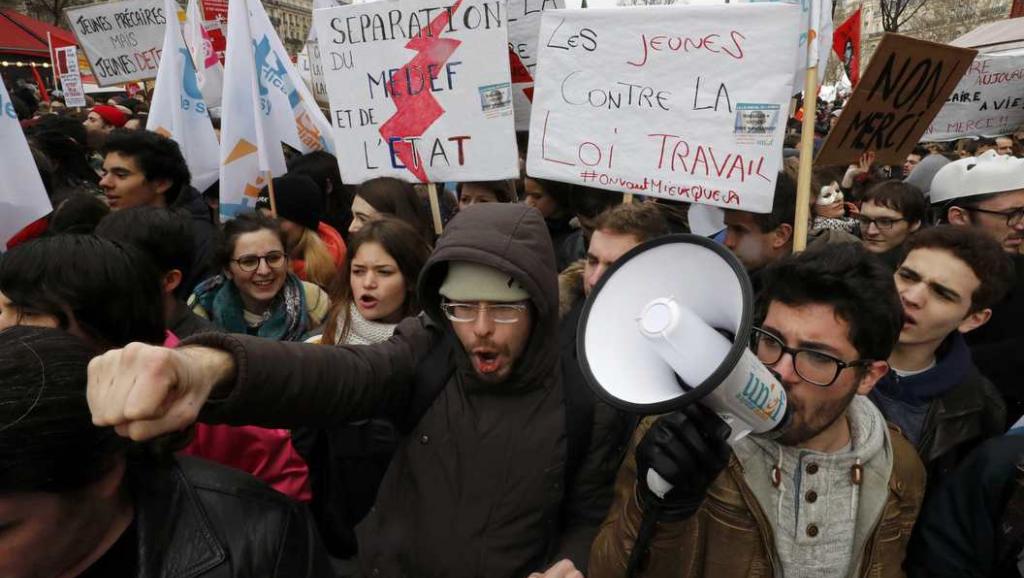
The following commentary comes to us courtesy of a member of anarchist organization Alternative Libertaire in France.
By Adeline DL
French President Macron wants to abolish wage labor for the benefit of the bourgeoisie. We want to abolish it for the benefit of the workers — actual class struggle.
The laws President Emmanuel Macron wants are an unprecedented attack on social and trade union rights. It’s all about getting all workers into micro-entrepreneur businesses, forcing them to become what in France is termed “auto-entrepeneurs,” essentially temp workers with no job security. And this is even more serious: these laws are part of a global offensive aimed at destroying not only the achievements of the former balance of power, but the very idea of compromise between capital and labor. It is about retirement, unemployment insurance, health care, taxes for the richest, suppression of posts in NGOs and local authorities, as well as of 120,000 civil service posts, the breaking of public schools, restrictions on admission to university… All of these changes are meant to benefit the rich at the expense of everyone else.
President Macron was elected last June. At the first round of the election, he only got 24% of votes cast (due to abstention, he got 18.2% of the votes of people who have the right to vote), mostly upper-class. At the second round, he competed with Marine Le Pen, the far-right candidate, and so people voted for him to make a barrier against the far-right, not for his program of deregulation. Last week, President Macron said in a speech that he would not yield to “the slackers, the cynics or the extremists.” As a former banker, his contempt for the working class might encourage workers to mobilize to oppose him.
For now, the law which will be approved by the French cabinet on September 22 is about encouraging the replacement of the employment contract currently required from employers — the standard since WWII — with a commercial contract offering no protections. The idea is: no more working group, no more unions, no more socialized salary made possible through the social contributions of workers and employers with guaranteed unemployment insurance, retirement, and health insurance. To do that, President Macron is pursuing the reforms by executive orders, bypassing standard parliamentary procedure. Only at the end of the procedure, in order for the reforms to come into force, parliament must, after September 22, give its final approval in the form of an up-or-down vote.
September 12 was the beginning of a long battle. 400,000 people have been demonstrating in the streets in Paris and other big cities. But to win we will have to go beyond the demonstrations and the days of repeated, but isolated, strikes. The next mobilization day is Thursday, September 21. Trade unity will be our priority (this was not the case for September 12). Workers will have to go on potential long-term strike in as many sectors as possible. We will have to include the young, the precarious and the retired, thanks to local general assemblies capable of inspiring all actions that can slow down or even halt the economy. We did not manage to do this in 2010 (pension reform) or in 2016 (the first Macron laws deconstructing labor law). This time we have to succeed.
